This post contains affiliate links.
Discover how keeping chickens in urban settings boosts ecosystems. Learn the benefits, from pest control and composting to fresh eggs and sustainable living. Perfect for urban homesteaders!
As a seasoned backyard chicken owner, I can attest to the myriad of benefits these delightful birds bring to urban ecosystems. Chickens are charming pets who improve soil health, reduce food waste, and offer fresh eggs right in the backyard. Whether a city dweller longing for a touch of the countryside or looking to contribute to a more sustainable urban environment, keeping chickens is the perfect solution to an urban oasis.
Lifestyle
Urban chickens transform lifestyles in ways never imagined! These feathered friends add a touch of nature to the daily routine by creating a serene environment right in the middle of a bustling city. Watching them go about their business is incredibly therapeutic, helping reduce stress and promoting a sense of well-being.
Urban chickens also turn your home into a mini-ecosystem, contributing to sustainable living practices. They are excellent at naturally disposing of kitchen scraps and reducing household waste. Besides the practical benefits, urban chickens produce a constant supply of fresh eggs which elevates your cooking and boosts nutrition.
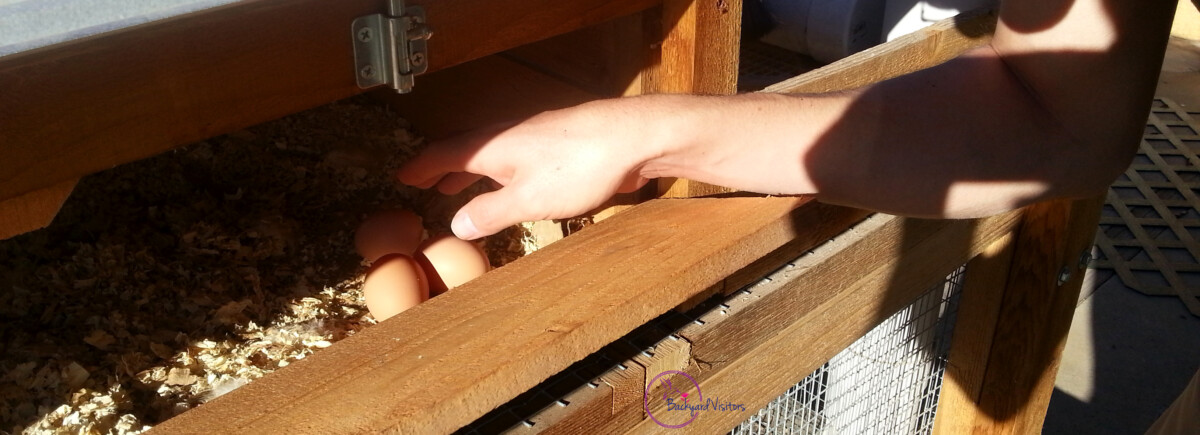
Notice the security latch above and the sturdy wire mesh below to keep predators out.
Chickens also provide teaching moments for children by offering lessons in responsibility and biology. Most importantly, urban chickens foster a sense of community among neighbors, who often find themselves intrigued and charmed by the feathered companions. This group activity and bonding enhances the quality of urban living in numerous ways.
Poultry Pest Patrol
Using chickens to control pests is a great method to protect the environment. Their natural foraging behavior provides benefits for a cleaner, healthier outdoor ecosystem. This naturally occurring pest control reduces the need for harsh chemical pesticides.
Free-range chickens eagerly scratch around in the yard and devour insects such as crickets, beetles, worms, larvae, ticks, even small rodents and reduces pests in the yard. This means fewer bugs harming your plants and fewer mosquitoes and flies.
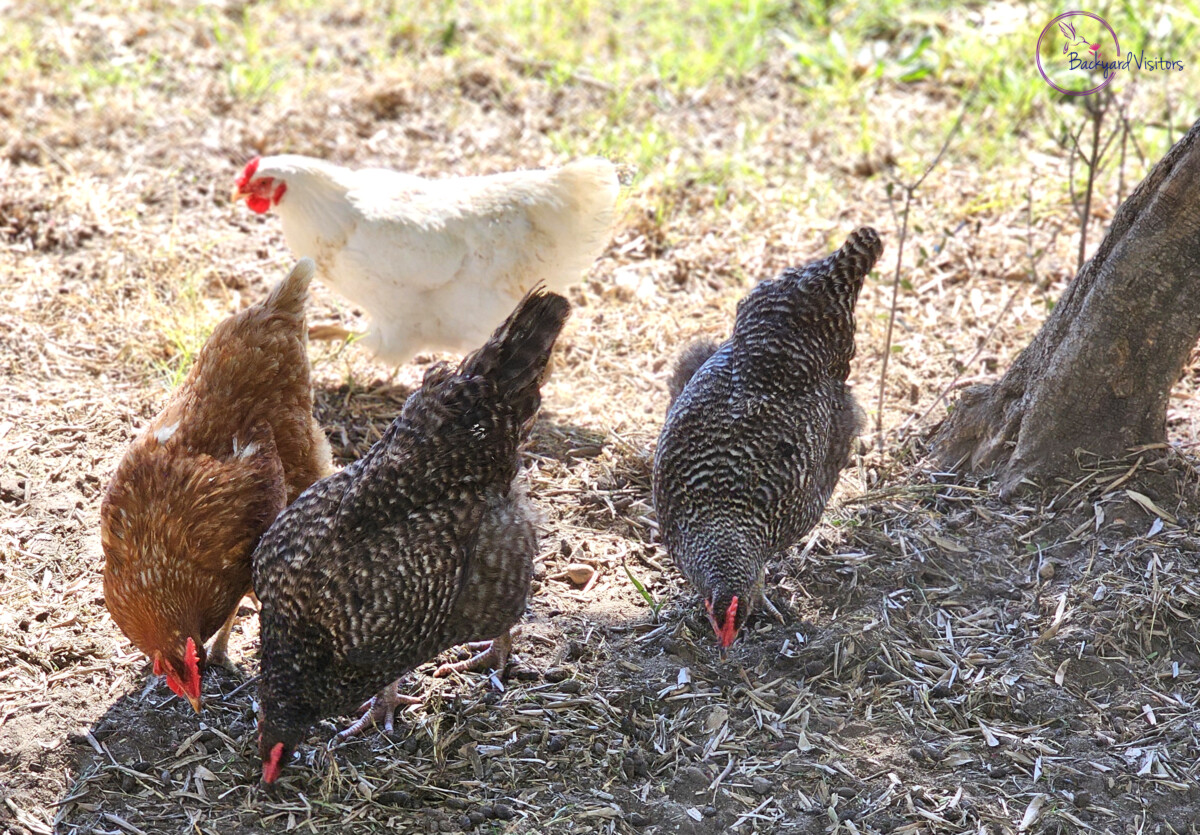
In addition to pest control, when chickens forage for food, they help aerate the soil which contributes to the health of your plants. Chickens are great at weed control since they eat many types of weeds and seeds and help to keep the garden areas clear.
Chickens incorporated into the urban environment is a win-win situation. With fewer pests, the garden thrives and you enjoy a more pleasant outdoor experience since it is entertaining to watch the flock diligently patrol and clean up the yard. Let these hard working birds take over as your very own Poultry Pest Patrol!
Biddie Biorecycling
Chickens are effective recyclers of kitchen waste. Instead of throwing away vegetable peels, leftover rice, grains, or fruit scraps, let the chickens enjoy them as they turn waste into nutritious fertilizer. This method, called Biddie Biorecycling, provides a sustainable means of feeding the flock while significantly reducing and recycling food and household waste that would otherwise end up in landfills.
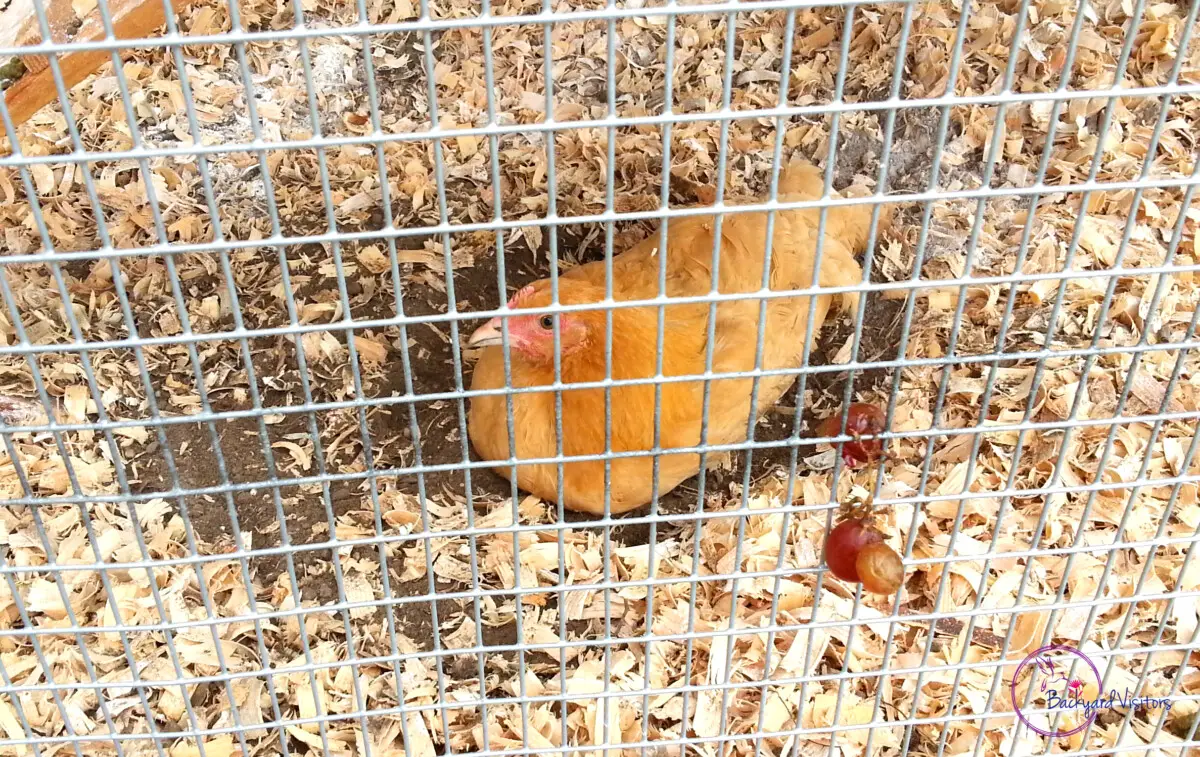
The nutrients from these scraps, combined with the chickens’ digestion, are returned to the earth in the form of rich, compostable manure. This nutrient-dense compost supports urban gardening efforts making it an excellent natural fertilizer since chicken manure is a rich source of nitrogen and other nutrients.
Composting chicken manure along with bedding materials, such as straw or wood shavings, a high-quality compost is created for organic gardens.
Biddie Biorecycling captures the ecological benefits and highlights the role of chickens in creating a sustainable and environmentally friendly waste management system in both urban and rural settings. By keeping chickens, you are contributing to a system that benefits the environment, the garden health, and your feathered companions. It is a win-win situation for everyone involved!
Fowl Fertilizer
One of the fantastic benefits of keeping chickens in urban ecosystems is the superb fertilizer they naturally produce. Chickens contribute significantly to soil fertility through their manure, which is rich in essential nutrients of nitrogen, phosphorus, and potassium. These elements are crucial to create an organic, vibrant and productive medium to grow healthy plants.
Integrate chickens into your urban homestead to reduce waste and promote sustainable gardening. When composted properly, chicken manure transforms into a powerful organic fertilizer that ensures vital nutrients for plants.
This cuts down on the need for chemical fertilizers and benefits both the environment and your wallet.
If you are pondering on ways to enhance your gardening game, look no further than these feathered friends. Their daily activities give back to your garden, to ensure a naturally rich and fertile soil that is perfect for growing bountiful, healthy crops.
Read my other related articles:
- Urban Chicken Keeping: Thriving with Chickens in the City
- Navigating City Ordinances and Neighbor Relations
- Designing an Urban Coop for Small Spaces
- Overcoming Challenges Specific to Chicken Keeping In Urban Settings
- Resources and Support for City Chicken Keepers
Hens and Humus
Chickens play a vital role in soil health enhancement by creating a rich humus for the urban garden that plays a critical role in soil fertility and overall health. Humus (hyoo-muhs) refers to the dark, organic component of soil formed by the decomposition of plant and animal matter. (Not the hummus that is spelled with an additional “m” that is made from garbanzo beans as a tasty snack). Their droppings are packed with nitrogen, a key component for fertile soil.
Chickens’ natural behaviors of foraging which includes scratching and pecking encourages decomposition as it aerates the soil and breaks down the organic matter of kitchen scraps and yard waste. This facilitates water absorption which in turn improves soil health.
The combination of hens and humus creates a sustainable cycle where the chickens benefit from a healthy environment and, in turn, contribute to it. This symbiotic relationship means healthier plants, improved soil structure, and a thriving urban ecosystem. If you are considering ways to boost your backyard garden, consider keeping chickens. Your plants will thank you, and so will your urban landscape.
Beyond laying eggs, chickens provide unmatched environmental benefits that transform your garden into a lush, productive space.
The Simple Steps to Keeping Urban Chickens
Starting your journey with backyard chickens is an exciting experience. Simple steps to keeping urban chickens is first, check local regulations to ensure you are permitted to keep chickens in your urban setting. Next, create a cozy coop that provides shelter and safety from predators.
Provide proper ventilation and nesting boxes for egg laying within the coop. Have a run for your chickens so that they can naturally roam and peck. This helps keep them happy and healthy.
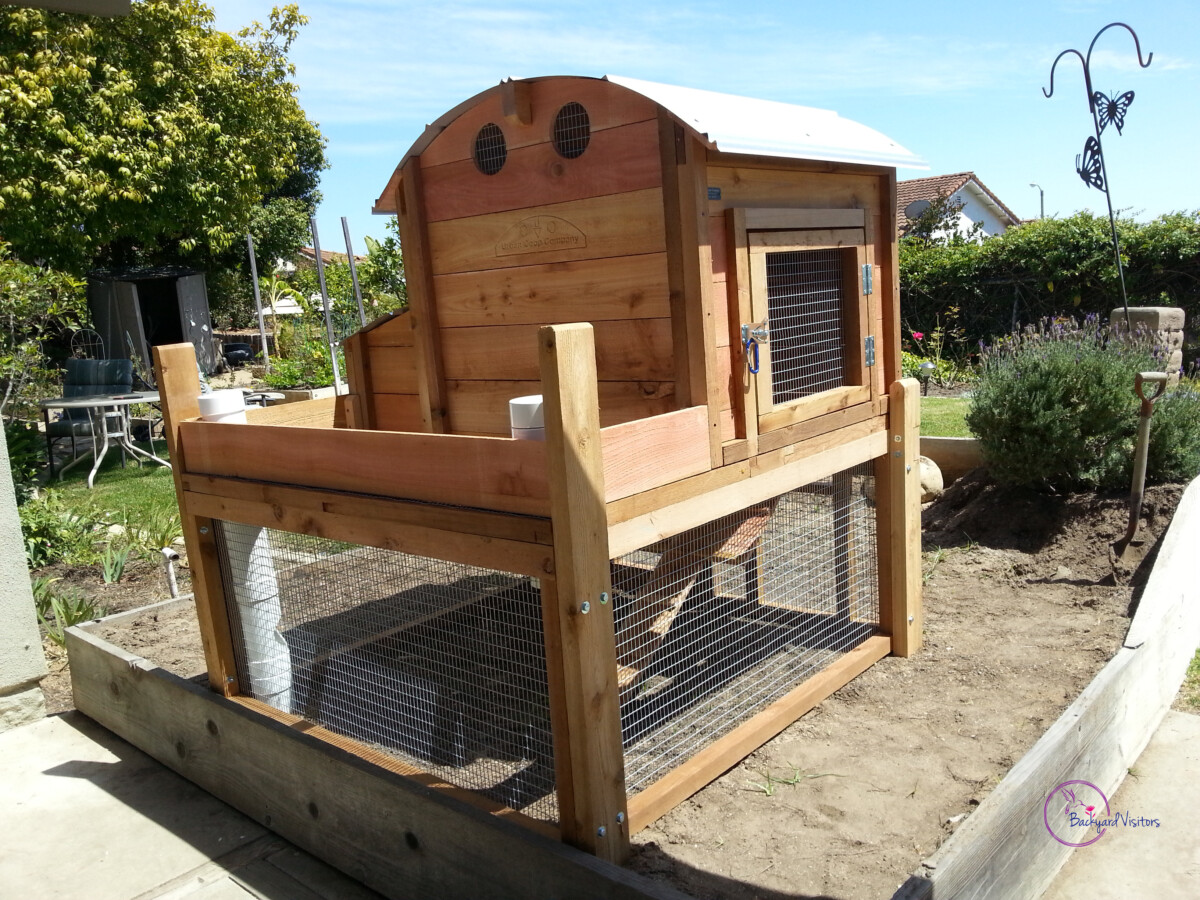
Feed them a balanced diet, including high-quality commercial feed and occasional kitchen scraps. Clean water is essential, so make sure it is always available. Regularly clean the coop and run area to maintain a healthy environment for your flock.
Lastly, spend time with your chickens. They are social creatures and your interaction will ensure they thrive. With these simple steps, you will find keeping chickens rewarding and beneficial for your urban ecosystem.
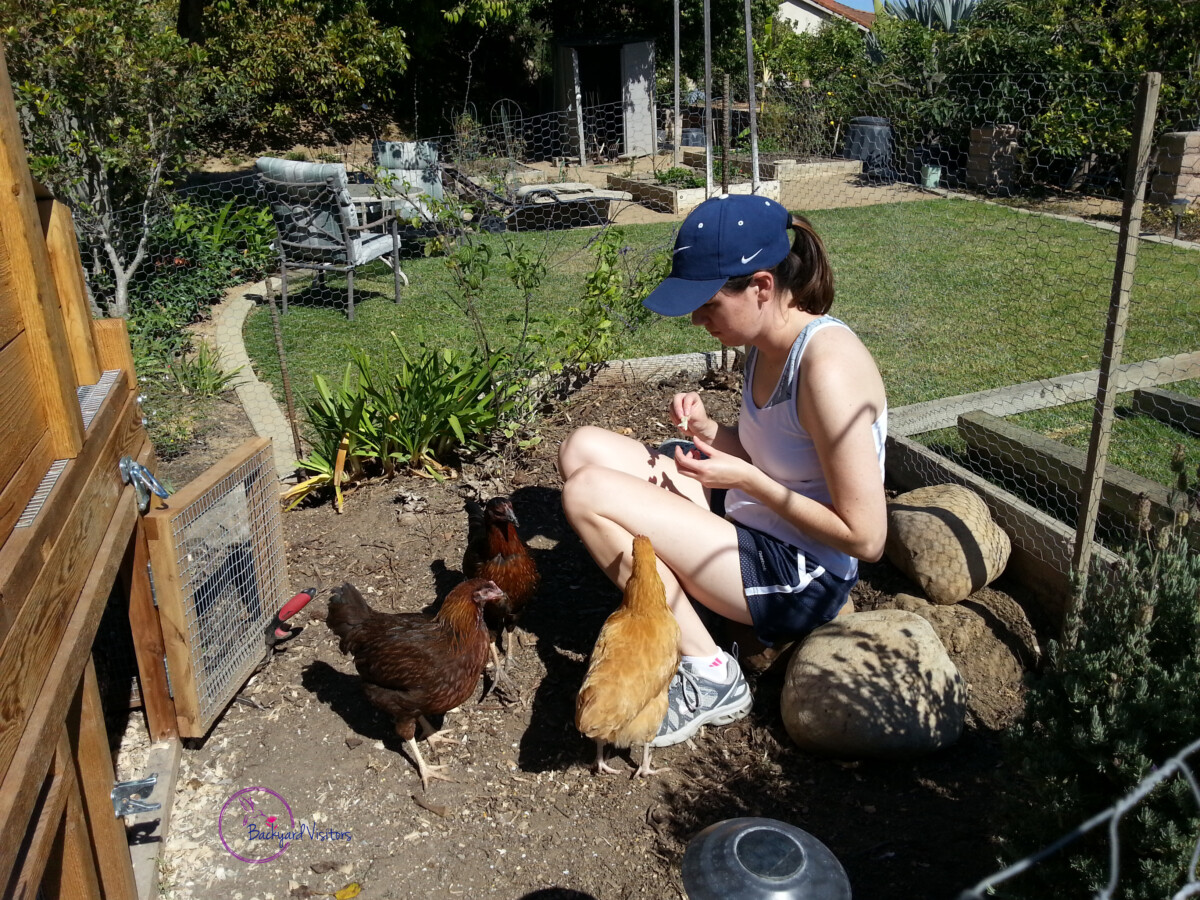
10 Simple Steps To Keep Backyard Chickens
- Check Local Regulations: Before starting, understand local laws and regulations regarding backyard chickens in your area.
- Build or Buy a Chicken Coop: Ensure the chicken coop is well-ventilated, predator-proof, and spacious enough for your chickens.
- Prepare the Coop’s Interior: Equip the coop with nesting boxes, roosting bars, and bedding material such as wood or pine shavings.
- Choose the Right Breed: Select a chicken breed that is suitable for your climate and space requirements.
- Provide Clean Water: Use a poultry waterer to provide clean, fresh water daily to keep your chickens hydrated.
- Feed Your Chickens Appropriately: Offer a balanced diet with commercial chicken feed, supplemented with kitchen scraps and grains.
- Allow Space for Roaming: Provide a secure, fenced area outside the coop for your chickens to forage and exercise.
- Ensure Proper Health Care: Regularly check your chickens for signs of illness, provide necessary vaccinations, and seek veterinary advice if needed.
- Maintain Cleanliness: Regularly clean the coop and change bedding to prevent diseases and pests.
- Monitor Egg Laying: Check nesting boxes daily and collect eggs promptly to keep the hens laying regularly and to avoid attracting pests.
The Benefits of Backyard Chickens in Urban Gardens
Ever thought about adding chickens to your urban garden? Backyard chickens bring a wealth of advantages that enhances your green space and offers a plethora of benefits to an urban ecosystem.
Chickens are natural pest controllers which means the use of fewer chemicals since they enjoy consuming insects that threaten your garden.
The presence of chickens supports a sustainable urban lifestyle which reduces food waste and encourages eco-friendly practices. Breaking down organic waste and turning kitchen scraps into rich natural fertilizer, a valuable compost called black gold is their specialty. This process known as Biddie Biorecycling enriches the soil and promotes healthier plant growth.
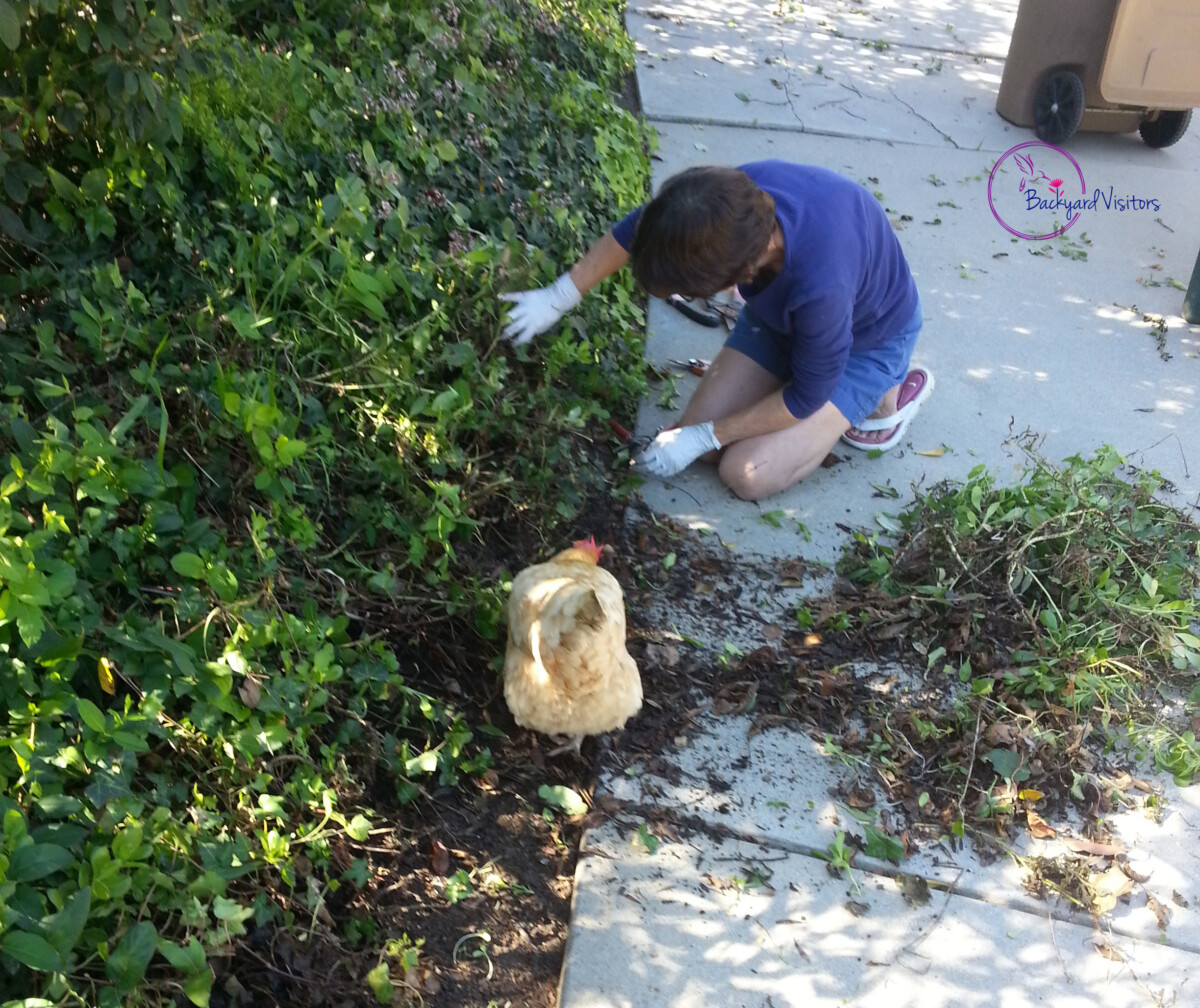
Furthermore, hens add rich, nutrient-rich dung to your compost—also known as “fowl fertilizer”. Their regular foraging and scratching practices strengthen the soil’s structure, which enhances water retention and aeration.
Home-raised eggs are more flavorful and more nutritious than store-bought options. The joyful activity of daily collecting fresh eggs offers a sustainable food source right from your backyard.
Research indicates that fresh eggs are lower in saturated fat and cholesterol than store-bought eggs. They also have up to 20 times more Omega-3 fatty acids, 25% more vitamins A, D, and E, and 75% more beta carotene.
The quality of fresh eggs also provides transparency about the chickens living conditions and how they are raised from free-ranging or pasture-raised chickens, organic or non-GMO feed and no use of antibiotics or hormones.
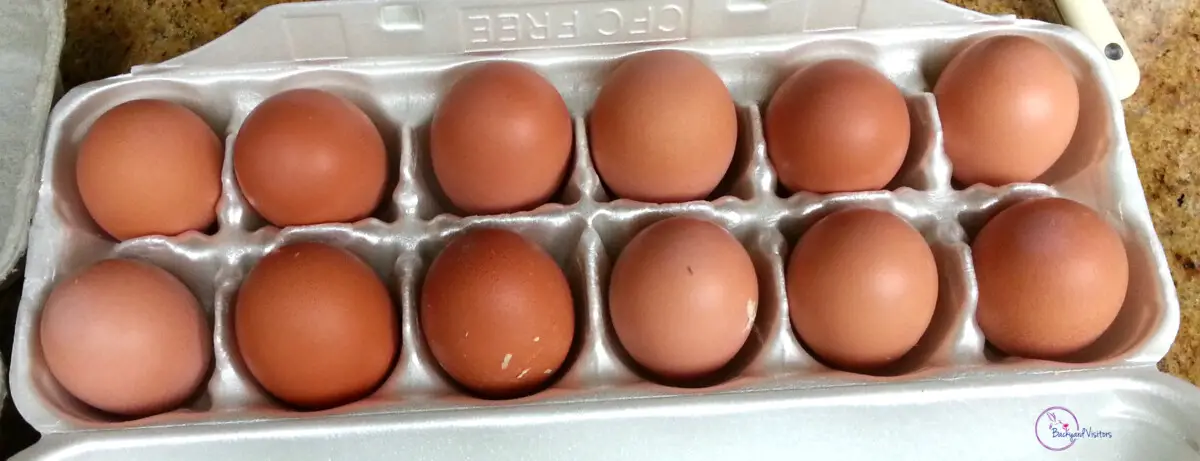
Fresh eggs are less likely to be treated with chemicals or additives. Store-bought eggs may be washed and sanitized with chemicals that can remove the natural protective coating on the eggshell, potentially affecting the quality and shelf life.
Having chickens is an advantageous and environmentally friendly choice as they enjoy consuming kitchen scraps, which contributes to a reduction in food waste.
The eco-friendly and environmentally sustainable process of creating your vibrant garden you have created helps connect with nature. Consider integrating chickens into your urban setup to reap these versatile benefits as you transform your backyard into a vibrant and sustainable ecosystem.
Other Benefits
Chickens offer a host of many other benefits encompassing the urban ecosystem beyond just pest control, manure production, and egg laying. Some additional advantages of keeping chickens in an urban environment include: educational opportunities, community building and therapeutic benefits.
Keeping chickens is a great educational and learning tool for children and adults to understand animal husbandry (raising animals for meat, milk, fiber, or other purposes), biology, and responsibility.
Many schools use chickens as part of their curriculum, teaching students about life cycles, agriculture, and sustainable living. Their presence encourages students to have a connection to their food sources and teaches families about sustainability and nutrition. Gathering fresh eggs daily provides a hands on, immediate impact activity that is meaningful. There is a deep satisfaction that comes from collecting eggs right from your backyard.
In addition, shared projects such as chicken keeping can become a communal program bringing people together through shared interests and cooperative efforts. This promotes social interaction among neighbors as people are frequently intrigued by chicken-keeping topics which spark delightful conversations..
If you have experienced watching and interacting with chickens, you will understand the therapeutic benefits of chickens in an urban landscape. In the midst of a fast paced setting, the entertaining antics of these friendly fowl brings a calming energy that reduces stress and contributes to a positive mental health. The routine of caring for chickens provides a sense of purpose and improves mental well-being.
Start Raising Backyard Chickens
Start raising backyard chickens and soon discover an array of benefits!
Plan, prepare, and continue with ongoing care and be rewarded with an experience that provides fresh eggs, a natural pest control, and a closer connection to nature.
Chickens are delightful creatures that bring life, joy, and productivity to your urban space. These hard working birds are fantastic natural pest controllers, to keep your garden free from unwanted insects. They provide rich organic fertilizer, which is considered gold to a gardener.
Raising backyard chickens means enjoying farm-fresh eggs, full of flavor and lacking the chemicals often found in store-bought counterparts.
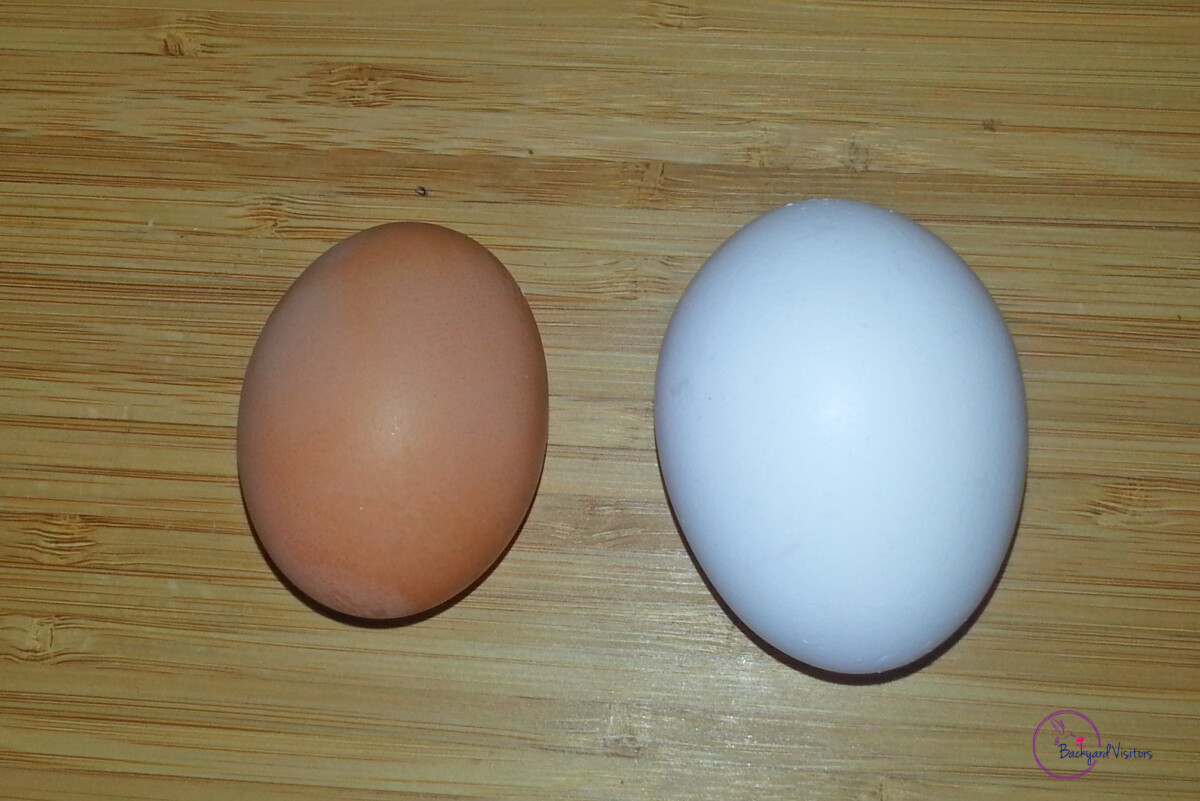
Additionally, the companionship these poultry friends offer is unmatched. Chickens come with distinctive personalities that are downright entertaining! Amidst the hustle and bustle of city life, these endearing animals remind us of nature’s simpler pleasures. Embrace the benefits of chickens in urban ecosystems and enrich your lifestyle. Start your urban homesteading journey and bring a little countryside to your urban backyard!
Check out my other posts on Backyard Chickens
Frequently Asked Questions
Q: What are the benefits of keeping chickens in an urban environment?
A: Keeping chickens in an urban setting offers numerous benefits which include soil improvement, soil health, food waste reduction, and fresh egg production. They also act as natural pest controllers. Included in the benefits is also their therapeutic value to help reduce stress and promote a sense of well-being.
Q: How do chickens help with pest control in a garden?
A: Chickens are excellent at reducing the pest population in your garden. They love to scratch and peck at the ground as they eagerly devour insects such as crickets, beetles, worms, and even ticks. This natural foraging decreases pests without the need for chemical pesticides, making your garden healthier, safer and more vibrant.
Q: Can chickens really help in reducing household waste?
A: Yes, chickens are remarkably efficient at recycling kitchen scraps through a process known as “biddie biorecycling”. They consume vegetable peels, leftover rice, and fruit cores as they turn them into nutritious food and reduce household waste. Additionally, the nutrients from these scraps are returned to the earth as rich, compostable manure.
Q: How does keeping chickens contribute to soil fertility?
A: Chickens produce manure rich in essential nutrients such as nitrogen, phosphorus, and potassium, which are crucial for healthy plant growth. When composted properly, this manure transforms into a powerful organic fertilizer which promotes a healthy and productive garden and reduces the need for chemical fertilizers.
Q: What do I need to start keeping chickens in my urban backyard?
A: It is imperative to check local regulations to ensure chicken keeping is permitted. You will need a cozy coop to provide shelter and safety, proper ventilation, roosting bars, food and water dispensers and nesting boxes. Adequate run space is crucial for the chickens to roam and peck. Provide a balanced diet which includes high-quality feed and kitchen scraps. Ensure clean water is always available. Regular cleaning of the coop and interaction with your chickens will keep them healthy and happy.
Q: How do chickens influence environmental sustainability in urban areas?
A: Chickens promote environmental sustainability by reducing food waste, providing natural pest control, and producing nutrient-rich manure that enhances soil health. They also reduce the need for chemical fertilizers and pesticides, thereby fostering a more eco-friendly urban lifestyle. Plus, there is the joy of collecting fresh eggs right from your backyard, reducing food miles and promoting a closer connection to your food source.
Q: Are backyard chickens suitable for families with children?
A: Absolutely! Chickens provide excellent teaching moments for children, offering lessons in responsibility and biology. Their social and interactive nature makes them entertaining pets. Children learn about sustainable living and the importance of reducing waste and recycling through hands-on experience with backyard chickens.
Q: How do chickens enhance community living in urban areas?
A: Urban chicken keeping often intrigues neighbors, fostering a sense of community. Conversations about chicken keeping lead to stronger neighborhood bonds. The presence of chickens creates a serene and nature-filled environment, enhancing the overall quality of urban living.
Happy Backyard Urban Chicken Keeping!
Backyard Visitors participates in affiliate programs which compensate us for referring traffic.
